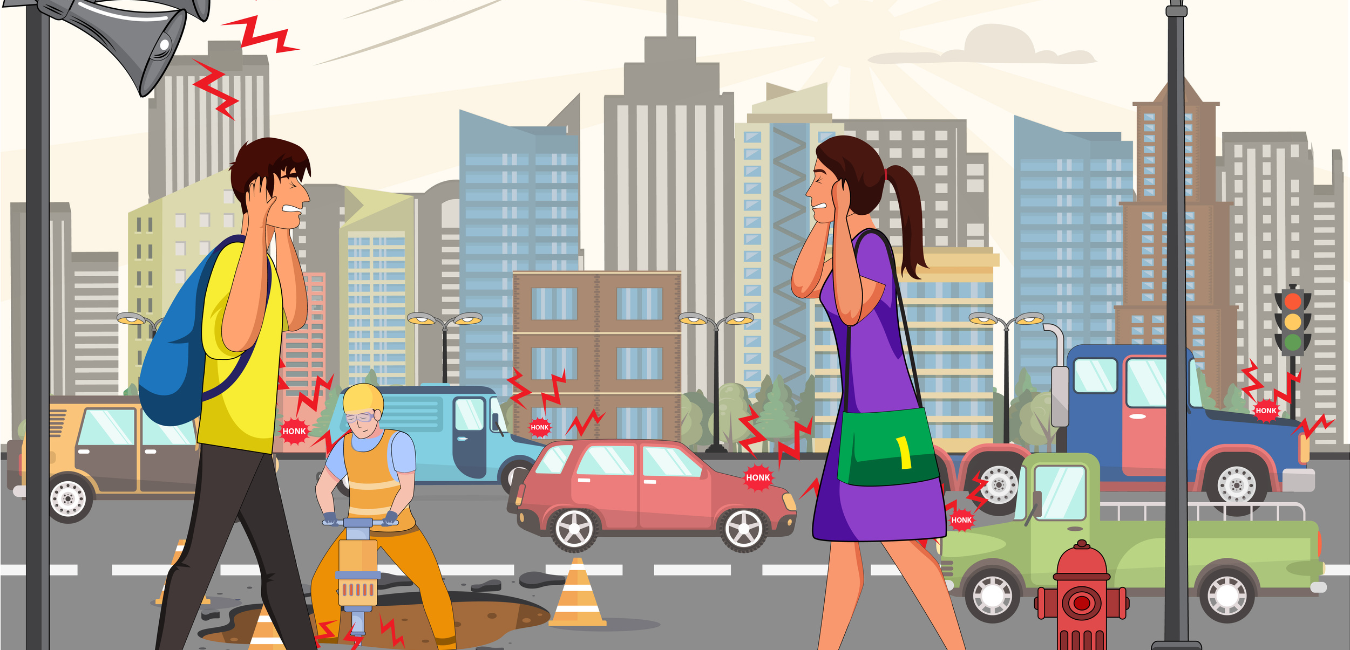Signs Your Loved One Needs A Hearing Test | Hearing Solutions
Although most things get better with age, hearing, unfortunately, is usually one of the things that don’t.
While it can sometimes be difficult to notice – especially when it happens gradually – hearing loss has the ability to drastically impact the lives of those suffering and the people around them. Left untreated, diminished hearing can have a long-lasting effect on a persons quality of life.
Use the following guide to recognize the signs and symptoms of hearing loss in your loved ones and learn to support them in their ongoing hearing health journey.
What are the signs to look for?
1. They ask you to repeat yourself
One of the most common signs – and often the first – of hearing loss is if your loved one starts asking you to repeat yourself. Frequently needing to have information reiterated could be a clear indicator that the individual wasn’t able to hear you properly the first time.
An individual who is demonstrating hearing loss symptoms may also be inclined to ask you what someone else said because they did not hear it initially.
If you suspect someone is experiencing diminished hearing, it’s important to provide the support and patience needed. This can be a difficult – and at times embarrassing – thing for people to come to terms with, so ensuring they feel safe and comfortable is crucial.
2. They ignore you when their back is turned
Many people suffering from hearing loss manage to hide their symptoms by relying on lip reading and facial expressions. However, this becomes difficult when either your back or theirs is turned because they may not be able to hear you at all and can’t supplement the information with other conversational elements.
If it ever appears as though someone is ignoring you when you’re talking or they don’t reply during a conversation, this could be a sign of hearing loss.
While not all hearing loss symptoms are obvious, it’s good to keep an eye on the people around you and be aware of any changes in their behaviour.
3. They turn the volume up rather high
When someone experiences diminished hearing, they may have difficulty listening to everyday media, such as television or radio.
If you notice a loved one continuously asking for the volume to be turned up, or they regularly keep things at a very high volume, this could be a sign they’re experiencing hearing loss.
Left untreated, a person suffering hearing loss could further damage their ears by listening to things at an uncomfortably loud volume. Helping people receive the necessary treatment for their suspected hearing loss symptoms ensures their quality of life is improved long term.
4. They complain people are mumbling
Hearing loss can make it impossible for individuals to hear certain sounds and frequencies. This may result in them being unable to understand what some people say, depending on how clearly and decisively they say it.
Diminished hearing can also cause some sounds to seem muffled or distorted.
One of the best ways to help someone exhibiting hearing loss symptoms is to be patient and offer the necessary support. Speaking clearly and in particular, tones can make it easier for them to participate in conversations unhindered.
5. They seem fatigued after long social interactions
Untreated hearing loss symptoms can require an individual to exert additional effort during conversations and long social interactions.
With their brain struggling to make sense of the different sounds in a room, it may take more energy for them to participate than usual. This can be an extremely tiring process – both physically and mentally.
In instances where the person feels overstimulated or exhausted, they may choose to withdraw from certain social events. If you notice a loved one either starting to remove themselves from social activities early or not attending at all, it could be a sign of an underlying issue.
6. They struggle with background noise
Individuals suffering from hearing loss often have greater difficulty communicating in spaces where the setting is overcrowded or excessively noisy. Additional background sounds can further mask conversations that are already difficult for the person to decipher.
When trying to mitigate someone’s hearing loss symptoms, consider reducing the amount of background noise within a given room or space. As well, be sure to remove any potential barriers that could stand in the way of them being able to hear the people around them.
How To Support A Loved One With Hearing Loss
1. Encourage them to take a hearing test
If you suspect you or someone you love is experiencing hearing loss symptoms, consider taking a hearing loss test. These tests can offer a simple, straightforward solution to determining whether or not you or your loved one have normal hearing, moderate hearing loss or severe hearing loss.
To make things easier, Hearing Solutions offers a free online hearing test that can be completed in three minutes. We also provide no-cost, no-obligation hearing tests with our hearing healthcare professionals at our conveniently located clinics.
You will be placed in one of the three hearing categories based on the answers you provide during the test. The next step would be for you or your loved one to book a consultation with one of our hearing healthcare professionals, who will help determine a plan.
2. Consider helping them get hearing aids
The earlier you address hearing loss symptoms, the sooner you and your loved one can return to life as normal. After determining the level of hearing loss, they are experiencing, the best solution may very well be hearing aids.
When you complete a hearing loss test through Hearing Solutions, you will have the opportunity to experience a live hearing aid demonstration specifically customized to your unique needs.
We will also review your preferences for size, colour, and desired listening lifestyle, as well as discuss available financing options.
If you or a loved one is hesitant to get hearing aids, it’s helpful to keep the following benefits in mind:
- Hearing aids can minimize cognitive decline: some research has proven that untreated, long-term hearing loss is associated with an increased decline in cognitive function.
Proper use of hearing aids may lower your risk of dementia and other cognitive conditions. - Modern hearing aids are fashionable and discreet: the days of feeling self-conscious about hearing loss are over.
Today’s modern hearing loss devices are available in a wide variety of models, styles and colours, each designed to suit your specific lifestyle. - Hearing aids ensure you can communicate with family: if your loved one is feeling too hesitant or proud to get a hearing aid for themselves, consider asking them to do it for you.
Hearing loss symptoms affect not only those suffering but also those around them.
What To Do Next?
Most hearing aid owners wait between 6.7 to 13 years before pursuing treatment. At Hearing Solutions, we aim to provide affordable hearing loss solutions that help you hear better.
To learn more about your hearing loss solutions, call us at 1-888-811-9799 or email reqesutinfo@hearingsolutions.ca.
References
Hearing Solutions. (2022). Online Hearing Test & Aid Fittings. Hearing Solutions. Retrieved November 22, 2022, from https://www.hearingsolutions.ca/online-hearing-test/
Kirkland, K. (2022). 4 Signs Your Loved One May Be Hearing Impaired. WebMD. Retrieved November 22, 2022, from https://www.webmd.com/connect-to-care/hearing-loss/signs-your-loved-one-may-be-hearing-impaired
Oticon. (2022, May 27). How do I know if my loved one needs hearing aids? Oticon. Retrieved November 22, 2022, from https://www.oticon.com/blog/how-do-i-know-if-my-loved-one-needs-hearing-aids
Professional Hearing Aid Fitting. (2022). Hearing Solutions: Hearing Tests & Hearing Aids in Ontario. Retrieved November 22, 2022, from https://www.hearingsolutions.ca/







